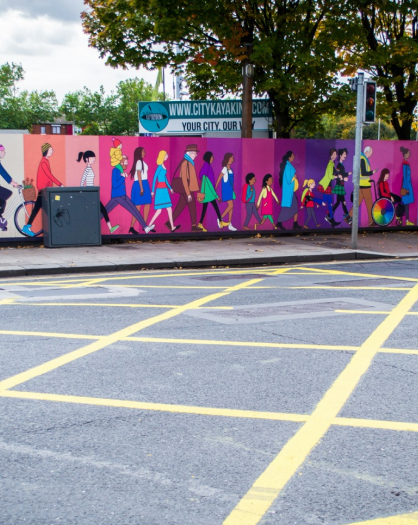Our mission
Digital technologies shape more and more aspects of our lives, from how we work and communicate, to how we live together in cities, participate in politics, promote health and fight disease. As digitalization expands to all sectors of society, governance of science and technology becomes increasingly complex, and balancing benefits and risks while negotiating competing interests becomes paramount.
iHub’s mission is to better understand the effects of digitalization on our society and to help steer digital transformations in ways where public values are central. We seek to do this by:
- bringing disciplines from across the humanities, computer and social sciences together to address challenges raised by digitalization;
- by focusing on the core values which are destabilized and need protection in digitalization processes;
- by adopting a critical and constructive approach.

'i' for interdisciplinary
Different disciplinary perspectives and diverse quantitative and qualitative methods are necessary for understanding how we adapt to digital transformations and for crafting solutions to the challenges they pose.
iHub therefore fosters interdisciplinary, collaborative research that involves scholars from a wide range of disciplines, including: computer science, philosophy, law, linguistics, educational sciences, behavioral and communication sciences, science and technology studies and organizational studies, and history.
In line with this combined approach, iHub encourages active collaboration with non-profit, public and private organizations. iHub also welcomes external researchers to join for a sabbatical and/or research visit.
